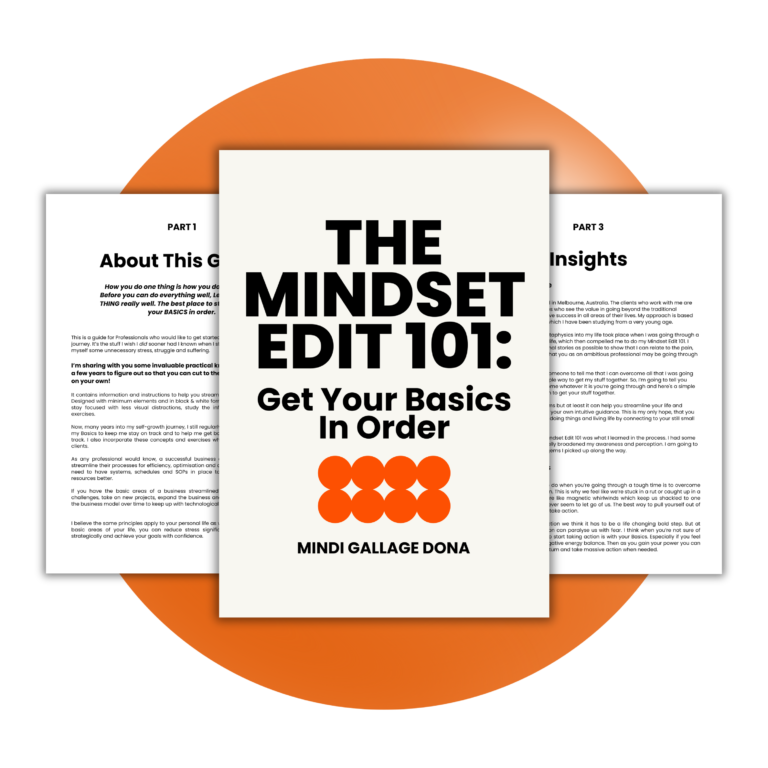As someone who works with corporate clients, entrepreneurs and business owners, goal setting is a subject I talk about pretty much daily. Nowadays I even notice more mental health professionals talking about the importance of setting goals to improve your quality of life.
The words you often hear related to goal setting are strategy, planning, perseverance, commitment, motivation, inspiration, purpose, passion, target, objectives, service, SMART goals (specific, measurable, actionable, relevant & time-bound goals), luck, gut feeling and good ol’ hard work.
However, I do not come across many talking about the important role which our subconscious mind plays when it comes to goal setting. Or the way one should make use of the subconscious mind to their own advantage as a catalyst to achieving their goals.
I think the main reason is that most people are not aware of the important role which the subconscious mind plays. Those who are sort of aware deem it as complicated territory and stick with luck, gut feeling and hard work. There are a rare few who know the real deal, make use of it and impart precious knowledge with the public but again as it is deemed as daunting the audience are not ready to take it in.
You may have tried the conventional ways and come to a point where you have had experiences making you think that there’s more which goes beyond strategic planning, logical thinking and weighing pros and cons.
This article is for you, if you are interested in metaphysics – the subject of going beyond our sensory perception and trying to understand life from a broader perspective – and apply those principles to achieve your goals.
Our conscious mind is the tip of the iceberg and the subconscious mind is the rest of the iceberg. This is usually the analogy used in metaphysics, psychology, new-age and spiritual teachings. Let me add another component to it; the sea on which the iceberg floats on is the superconscious mind; which is what you may call the God, Universal Mind, Infinite Mind, Infinite Intelligence, Collective Consciousness etc.
The conscious mind in the waking state, collects data from our environment using our sensory organs and then interprets the data mostly based on our past experiences and what people of expertise and authority have declared to be true. To streamline this process of interpretation, we formulate mental theories or what we call beliefs. So usually when we are met with a novel experience, challenge or a crisis we automatically recall these beliefs and react. Most of the time even if we take time to think, our thinking still uses our existing beliefs, based on our past experiences to create a similar response.
Not all beliefs are true and what you believe will be your personal truth. This is a catch 22. This is why some individuals thrive even during challenging times and others fail to realise their dreams even in the least challenging circumstances. I noticed this even more so during the recent challenges we experienced in 2020, where people with no prior business acumen started their first ever business selling non-essential products and are still thriving. It’s not the circumstantial evidence which decides whether we achieve our goals but our personal beliefs.
The subconscious mind works with the superconscious mind to facilitate the process of achieving our goals. In other words the subconscious mind is the communicator between our conscious mind and the superconscious mind. Think of the superconscious mind as a warehouse full of infinite resources and possibilities. Whatever we desire can be manifested using these resources and possibilities.
Coming back to our catch 22, the subconscious mind does not discern beliefs between which is negative, positive, limiting or permissible. Whatever is dominant and intense of the beliefs are taken into consideration. It just processes whatever is dominant at the moment and works with the superconscious mind to bring it into reality.
Realisation of this mechanism is key to achieving your goals. In other words, you would need to not just understand, but fully realise the significance of this phenomenon. You cannot doubt and desire your goals at the same time. This is why we experience a lot of resistance on our way to achieving our goals. If you believe your current circumstances are not favourable, the subconscious mind will make sure that becomes your reality. If you believe that trustworthy partners are hard to come-by then you will keep attracting those who cannot be trusted.
You often see people trying to copy what successful people have done to the T; follow their diet, meditation practices, read the same books, attend the same high ticket events, use the same sophisticated software and everything in between but still struggle to achieve their goals. For a long time during my corporate career I used to interview leaders who I admired and used to ask what it is that they do. Now I’d ask what it is that they believe. Because what you believe is what matters.
It took me a while to clean up my beliefs and realise that it really is up to me to wallow in my insecurities or start thinking from a new perspective altogether. And I still work on it. This doesn’t mean that you need to clean up your limiting beliefs before you start working on a goal. In fact that would be the biggest mistake to make ever! The funny part is that you will not get to recognise what your limiting beliefs are until you start working towards a goal!!!
So knowing how the subconscious mind works, when setting goals and achieving them, an important step of your strategy is to clear your limiting beliefs related to the goal and about life in general. The goal specific beliefs could be being scared of being the first in the industry to create something new and a belfie related to life in general could be your attitude towards accumulating wealth.
I will give you a couple of tips to help you clear your limiting beliefs and use the subconscious mind to your advantage.
1.Start meditating for at least 10 minutes a day. The ideal time is soon after you wake up and when your mind is still in alpha state. Drink a glass of water, splash some water on your face and focus just on your breathing for 10 minutes. This will help you to clear your mind, relax your body and ease your emotions so you can learn to summon silence voluntarily. The ability to command silence is the key to getting a hand on your habitual negative mental chatter which is a product of your limiting beliefs.
2. Create a vision board or a mood board with images related to your goal. Write your goal with emotional words and include that to your vision board. Read your goal and immerse yourself in the images feeling the state of accomplishment for at least 5-10 minutes after your meditation everyday including weekends. Your positive emotions are the magnetic force which pulls you towards your goal.
3.Get into the habit of reviewing your day in relation to your goal. Your journal is your best friend to help you practise reviewing at the end of the day. This habit is non-negotiable if you are serious about your goals. Here are some questions to help you review your day:
- Did I feel any resistance towards my goals today? If so, what negative emotions did I feel?
- What were my concerns related to the negative emotions?
- What are the limiting beliefs related to my concerns? Then write down 3 different counter arguments to disprove these beliefs.
- What are ten things I can appreciate about my day? Do not skip this part. It is important to balance out the review of your day with looking for evidence of positive experiences. Otherwise you will be training your subconscious mind to constantly look for what-is-wrong-with-me.
- What can I do differently tomorrow if (not when) I feel these resistant thoughts again? Write down at least 5 different things you can do to challenge your negative beliefs and mental chatter. Such as going for a walk, journaling and spending a few minutes visualising the goal already achieved to positively impress the subconscious mind.
4.Practise visualisation for at least 10 minutes before falling asleep. This is again about making use of the alpha state to impress your subconscious mind. I think the 10-30 mins before falling asleep is the best time to practise visualisation of your goal as already achieved. If visualising for 30 mins is hard, start with 10 and increase it until you fall asleep.
5.Avoid talking with friends, family and anyone else who is not supportive of your goal. If you cannot avoid them, try your best to not talk about your goal with them. I know there are those entrepreneurs who thrive on a good challenge from naysayers. But not all of us are good at it. Because the more you argue with them and try to justify your efforts and seek validation from loved ones, the more you waste your precious creative energy. This desperate going back and forth keeps giving conflicting information to your subconscious mind.
This is one of my favourite quotes from Napoleon Hill’s Think And Grow Rich.
“The subconscious mind works day and night. Through a method of procedure, unknown to man, the subconscious mind draws upon the forces of Infinite Intelligence for the power with which it voluntarily transmutes one’s desires into their physical equivalent, making use, always of the most practical media by which this end may be accomplished.”
I will be talking more about the subconscious mind in future posts. Please drop your questions below and let me know what you would like me to talk about next.


